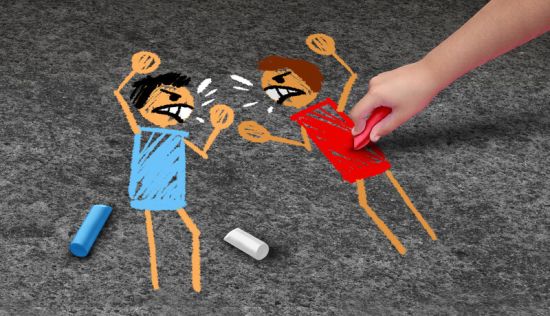Prescribing to Children of Divorce
The Carlat Child Psychiatry Report, Volume 12, Number 1&2, March 2021
https://www.thecarlatreport.com/newsletter-issue/ccprv12n12/
Issue Links: Learning Objectives | Editorial Information | PDF of Issue
Topics: Collaborative care | custody agreement | Divorce | Free Articles | Medication | Separation
Anthony Charuvastra, MD. Adjunct Assistant Professor, NYU Langone Medical Center Department of Child and Adolescent Psychiatry. Dr. Charuvastra has disclosed that he has no relevant financial or other interests in any commercial companies pertaining to this educational activity. Each year in the US, there are about 1.04 million divorces, affecting about 800,000 children. Beyond that, 1.9 million cohabiting (and unmarried) couples break up each year, of whom 60% have children (www.census.gov/data/developers/data-sets/acs-1year.html). It may not be the divorce itself that is hard on children, but how the divorce is handled (ie, amicably or not). This article will help you support divorced parents as they make treatment choices that are in the best interests of their child and the family system. Legalities and paperwork Be sure to talk about payment too. Even if only one parent has custody, you will need to establish who is paying for services, including what insurance company, if applicable. Do not assume that the custodial parent is paying for treatment since such expenses might be shared or even covered only by the non-custodial parent. Such complexities reinforce that the clinician must always make an effort to involve both parents in treatment discussions and document this effort. Building a working relationship Emotions impacting treatment Four Principles for Helping Children in Separated or Divorced Families Some tips for addressing these challenges include: CCPR Verdict: In divorce, the usual complexities of clinical practice are amplified. Children of divorce do better when parents co-parent in a collaborative manner. Faced with parents who are often suffering and don’t like each other, the clinician can be a trusted, neutral figure who elicits the best from each parent and reminds them that they can find common ground in working together to support their child.
Before treating your patient, make sure that the parent bringing the child has the authority to consent for outpatient treatment. Ask for a copy of the custody paperwork and clarify what the legal custody arrangement is. “Physical custody” refers to the child’s living arrangements, while “legal custody” refers to decision-making authority that parents have after separation or divorce. “Sole legal custody” describes a situation where the court has decided that only one parent (the custodial parent) has decision-making authority; in this case, only the custodial parent will need to sign contracts, information releases, and consent for treatment forms. By contrast, “joint legal custody” describes a situation where either parent can consent for medical treatment. In most states, under joint legal custody, consent is needed from only one parent, unless the court papers specifically instruct that both parents must consent for medical treatment (Benitez BR, The Therapist, May/Jun 2001; www.tinyurl.com/35zj77f4).
How do we involve both parents in cases of separation or divorce? From the very start, try to speak with parents together. This will help you assess their ability to suppress hostilities and work collaboratively in the interests of their child. The expectation of collaboration makes parents more open to expert advice, defusing the power struggles between parents that often characterize the post-divorce landscape, and improving such things as medication compliance in both households. To make this work, it helps to review some of the common problems inherent in family and parental interactions so that you can adjust your approach.
Guilt or anger may cause parents to disengage from co-parenting or, alternatively, to become intensely involved in the process. They may perceive routine and necessary psychiatric treatment as proof of their inadequacy. With ADHD, for example, parents may resist accepting the diagnosis and go to heroic lengths such as changing schools several times or hiring help to supervise the child. These reactions can also undermine treatment plans, ranging from the subtle (forgetting to give their child medicine) to the overt (explicitly telling their child that they “don’t believe in ADHD”). Alternatively, one parent may blame the child’s difficulties on the other parent. You may also experience direct hostility from parents.


